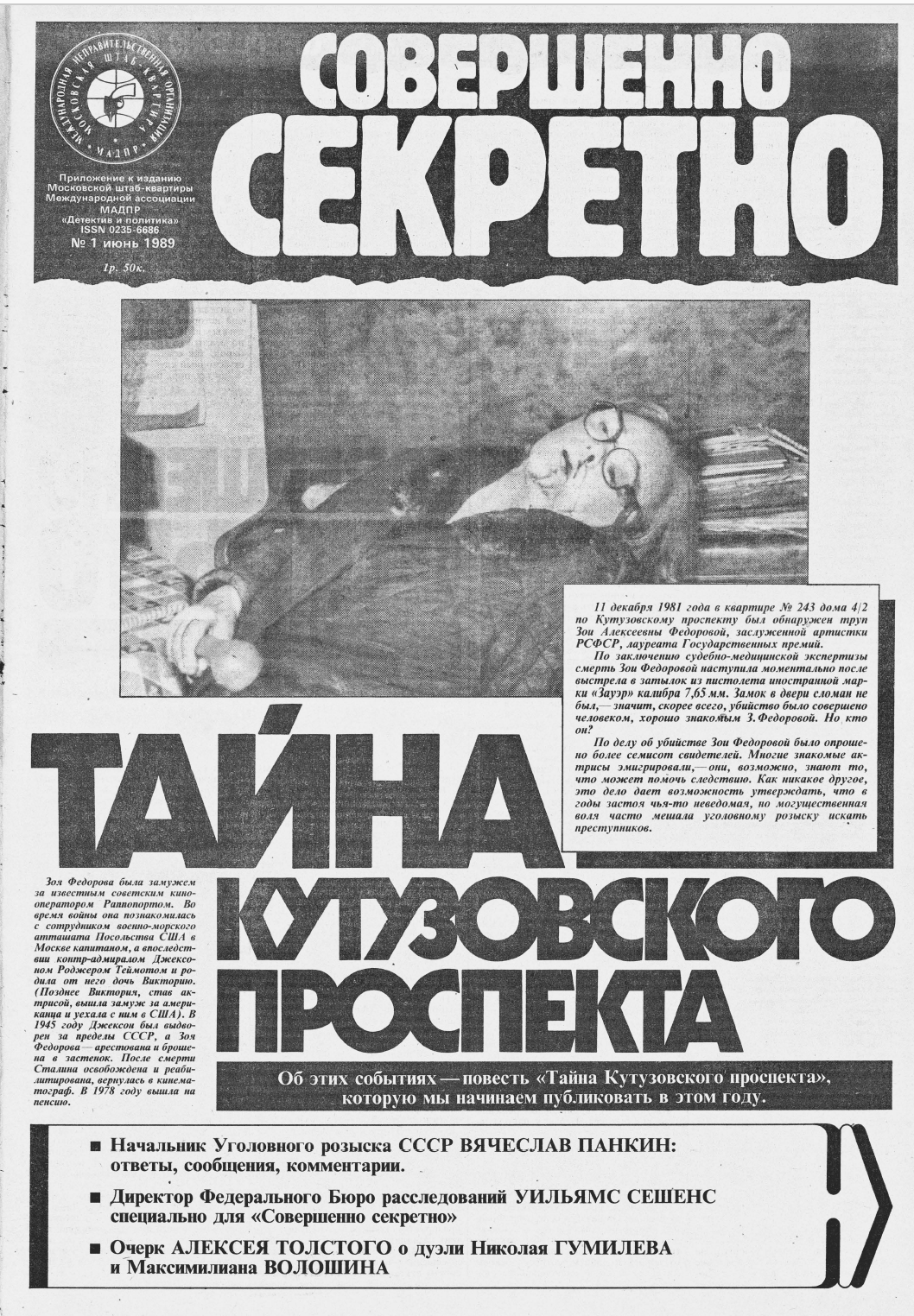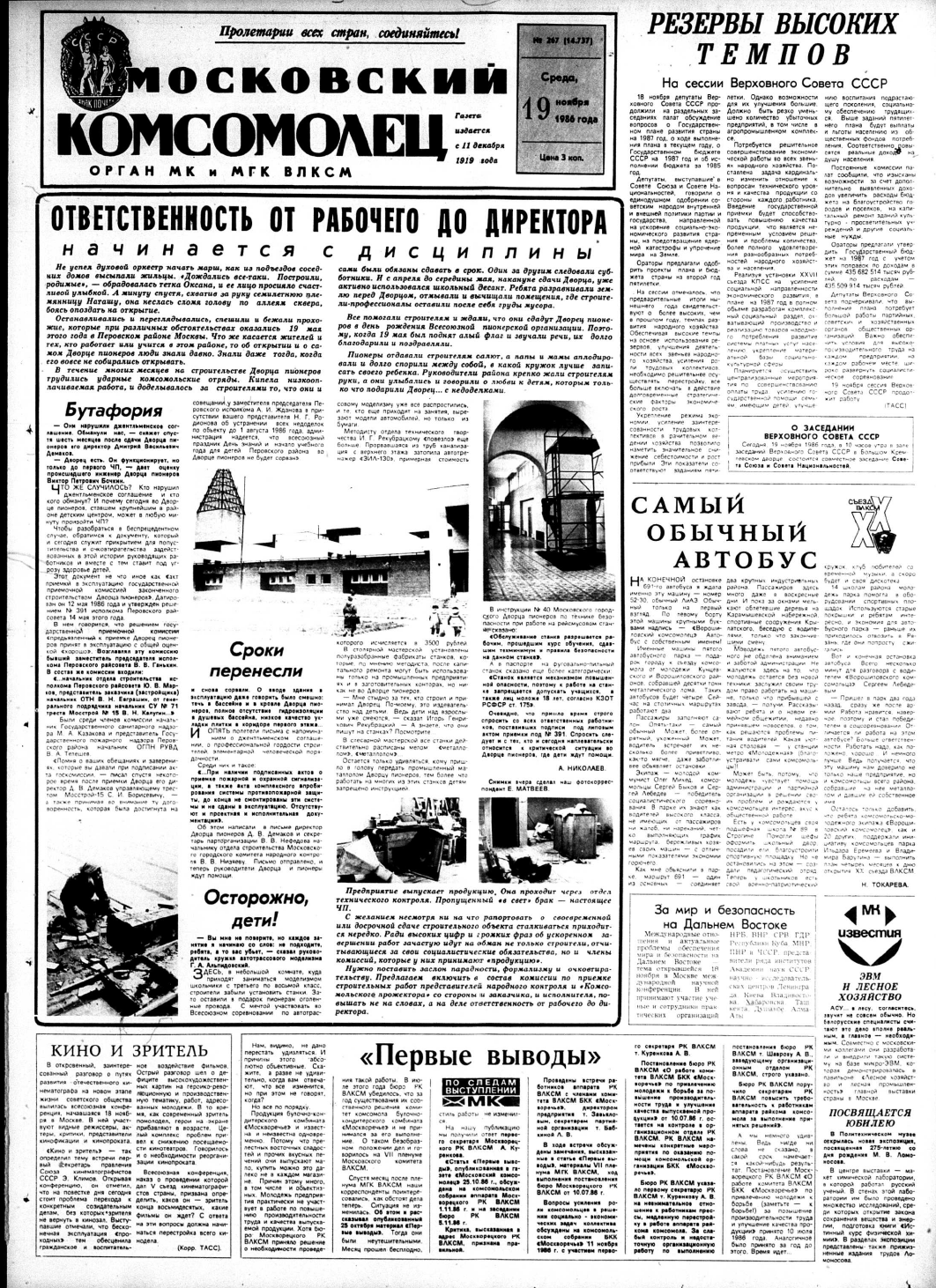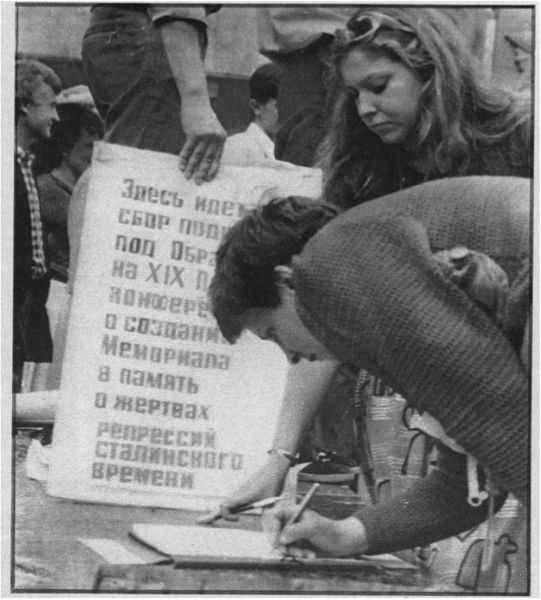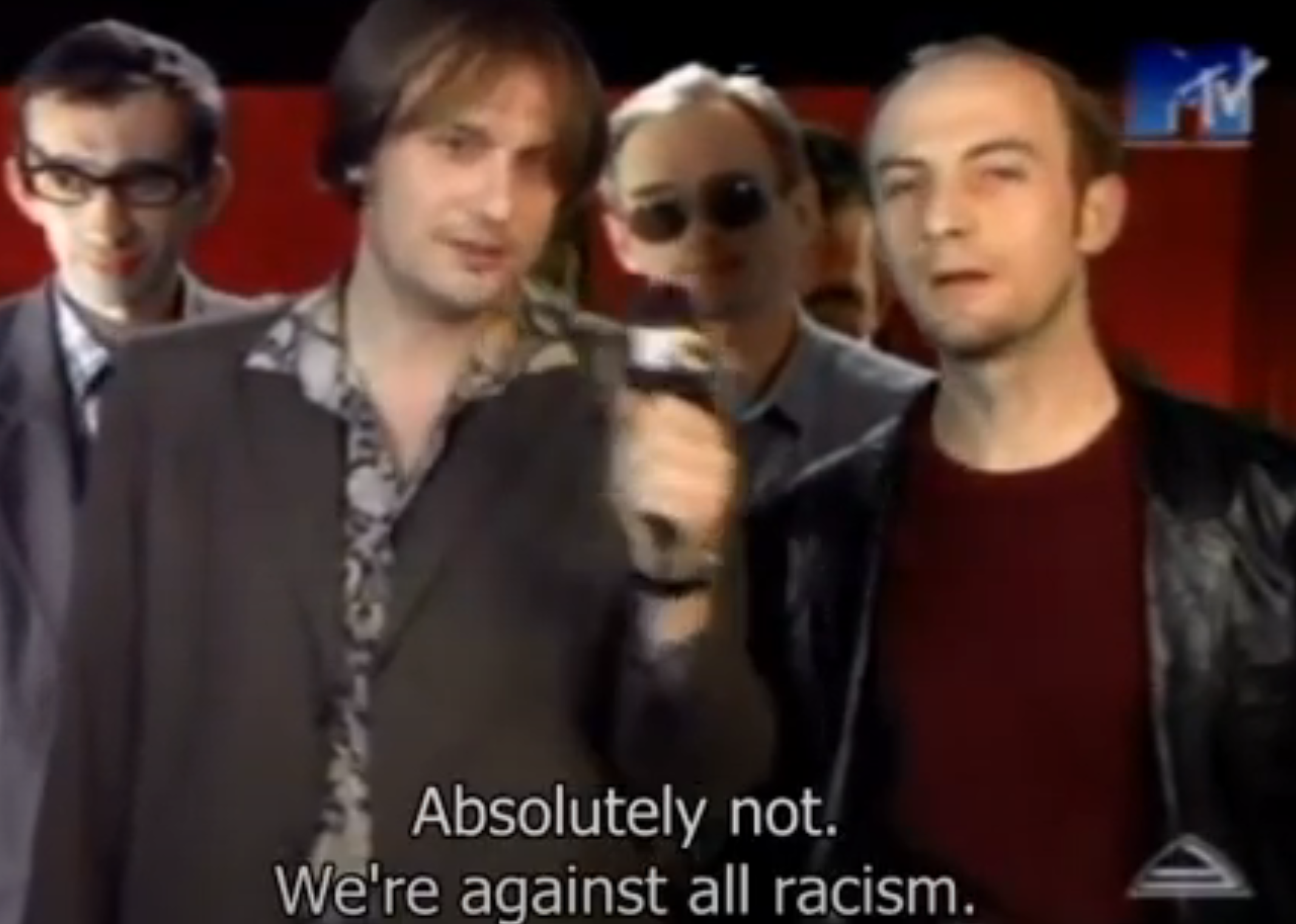Search Results
Search Terms
Results: Displaying Artifact 91 - 96 of 106 in total
Text Containing:
Page: 16
Thematic Tags: Russia
Top Secret: Investigative Journalism and True Crime During Perestroika
Sovershenno sekretno, the first privately owned periodical in Soviet Russia since 1917, showcased a combination of transparency and sensationalism that became a distinguishing feature of journalistic writing in the post-Soviet period.
The First Article on Prostitution in the Soviet Union
"The White Dance" by Evgeny Dodolev broke a major taboo of Soviet press by reporting on the existence of foreign-currency prostitutes in the USSR. Dodolev would then go on to be a part of the "Vzgliad" team, as well as the creator of 1990s "Novyi vzgliad." "Moscovskii komsomolets," 19-21 November, 1986
The founding of the Memorial Society in the late 1980s
Three moments in the early history of Memorial, a human rights group established in Gorbachev-era Russia (and abolished by Putin’s government in 2022) to document and memorialize Soviet political repressions and abuses.
View Artifact
“Iceberg,” an anti-Zyuganov television spot
An animated political ad from 1996 reminds viewers of the awfulness of the recent past, identifying Communist Gennady Zyuganov with Soviet brutality and empty sloganeering.
View Artifact
The Hit Song “Ubyli Negra” (1999): Dark Humor or Racism?
Music video and lyrics from the 1999 musical hit “Ubily negra [They Killed a Black Man]” by the band “Zapreshchennye barabanshchiki.”
An Encounter with America
This billboard advertising the cigarette brand L&M is positioned in front of the burned façade of the Russian White House, which was bombed on Yeltsin’s orders during the 1993 Constitutional Crisis. It possibly inspired one of the most famous passages from Victor Pelevin’s iconic satire of the 1990s, “Generation P” (titled, in English, “Homo Zapiens”).





